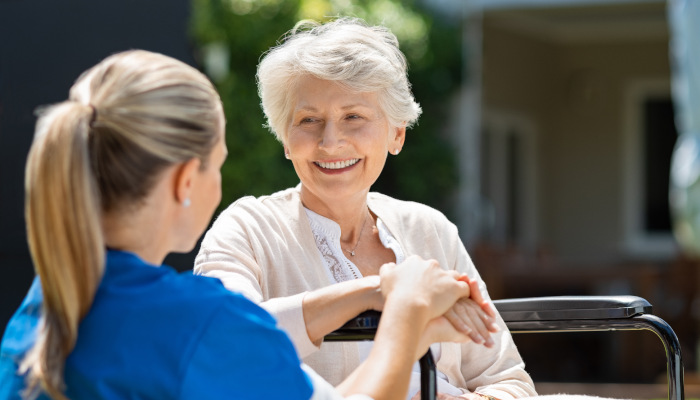Private Care for the Elderly at Home - Abu Dhabi - Dubai
Private care for the elderly at home refers to personalized and individualized care services provided by trained caregivers or home care professionals in the comfort of the senior's own residence. It is a flexible and customizable option that allows seniors to receive assistance, support, and companionship while maintaining their independence and remaining in a familiar environment. Private care for the elderly at home can include various services to meet the unique needs of each individual. Here are some key aspects of private care for the elderly at home:
- 1. Personal Care Assistance: Private caregivers can provide assistance with activities of daily living, including bathing, dressing, grooming, toileting, mobility support, and medication reminders. They can help seniors with tasks that may have become challenging due to age-related limitations.
- 2. Companionship: Private caregivers offer companionship and social interaction to seniors. They engage in conversations, provide emotional support, and participate in activities or hobbies together, reducing feelings of loneliness and isolation.
- 3. Medication Management: Caregivers can assist with medication management, ensuring seniors take their medications on time and in the correct dosage. They can also help with medication reminders and organizing pillboxes to promote medication adherence.
- 4. Meal Preparation and Nutrition: Private caregivers can assist with meal planning and preparation, taking into account dietary restrictions and preferences. They ensure that seniors have access to nutritious meals and snacks to support their health and well-being.
- 5. Light Housekeeping: Caregivers can help with light housekeeping tasks, such as tidying up living areas, doing laundry, changing bed linens, and maintaining a clean and organized environment for the senior.
- 6. Transportation and Errands: Private caregivers can provide transportation services, accompanying seniors to medical appointments, social outings, grocery shopping, or other errands. They can help seniors stay connected to their community and maintain an active lifestyle.
- 7. Medication Monitoring and Vital Sign Checks: Some private caregivers have the training to monitor vital signs, such as blood pressure, heart rate, and oxygen levels. They can also keep track of medication schedules and report any changes or concerns to the senior's healthcare provider.
- 8. Cognitive Stimulation: Caregivers can engage seniors in activities that promote cognitive stimulation, such as puzzles, memory games, reading, or discussions. These activities help keep the mind active and can contribute to maintaining cognitive function.
- 9. Respite Care: Private caregivers can provide respite care to give family caregivers a break from their caregiving responsibilities. This temporary relief allows family members to rest, attend to their own needs, or take time off while ensuring their loved one receives proper care and support.
- 10. Care Coordination: Private caregivers can communicate and coordinate with healthcare professionals involved in the senior's care, such as doctors, nurses, or therapists. They can assist in scheduling appointments, providing updates on the senior's condition, and following care plans as instructed.
Private care for the elderly at home offers personalized attention, tailored to the specific needs and preferences of the senior. It provides a sense of security and comfort, promoting the overall well-being and quality of life for older adults.
When seeking private care for an elderly individual at home, it is important to research and choose reputable home care agencies or individual caregivers who are experienced in providing care to seniors. It is advisable to conduct interviews, check references, and ensure that the caregiver has the necessary qualifications and certifications. Open and clear communication is essential to establish expectations and maintain a positive caregiving relationship.

